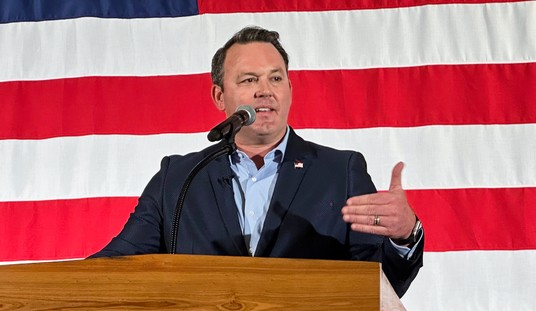Howard Kurtz writes that it’s time to “Let the Explaining Begin!”, and includes a good explanation of the immediate post-election period:
Jonah Goldberg of National Review says, “There are three or four days after every election where the clay is still malleable and everyone wants to pound it before it hardens into conventional wisdom. There’s this furious battle for everyone to impose their own meaning on the election returns.” The less glamorous reality, he says, is that “Bush got more people to the polls and no one thought he could.”
But what’s really fascinating in Kurtz’s column is the difference between how the two parties handled the press, which confirms a number of assumptions in the Blogosphere in the past few months:
Throughout the long season, journalists were viewed very differently by each campaign. The Bush team was a relentlessly disciplined outfit that excelled at returning phone calls but gave reporters little of the whispered sniping or backstage color on which the media thrive. The president did few interviews, in keeping with his record low number of televised news conferences, and advisers objected to fact-checking pieces by major news organizations. His operatives put out releases criticizing individual journalists. Vice President Cheney, who barred New York Times staffers from Air Force Two, called one Times report “outrageous” and said the press is “oftentimes lazy.”
In the New Republic, Bush adviser Mark McKinnon likened the media to “dangerous zoo animals.”
“We just didn’t get the sense that the press was ever going to be our friends,” McKinnon says in an interview. “We were not going to get more mileage out of going out to dinner with reporters, hanging out in bars and doing more schmoozing.” Citing the botched CBS story on Bush’s National Guard service and the Times report on missing Iraqi ammunition, McKinnon says they concluded “that we weren’t going to get a lot of breaks.”
The Kerry campaign was friendlier to reporters but, for months, more disorganized at responding to queries. Tensions simmered over the summer when the candidate went six weeks without answering questions from his traveling press corps. Endless pieces were written about strategy debates and power struggles within the campaign, often fueled by unnamed aides.
“There was a presumption from August on that Bush would win the election,” says Joe Lockhart, one of several Clinton White House veterans hired for the final stretch. “And what comes with that perception is a different way of looking at the candidate and how you cover him. If you think Kerry is going to lose, then if three or four new people are brought in, the story will be written as a staff shakeup out of weakness, as opposed to a strong campaign adding new talent. He was treated as someone who was a long shot.”
When Kerry spoke to a group, Lockhart says, he would be depicted as trying to compensate for lack of support. “It’s very important in a campaign not to be perceived as a loser,” he says.
Why was Kerry so friendly with the press? Because essentially, he was a press-built phenomenon. Kerry did little to change the perception that “from August on that Bush would win the election”: his disastrous run-in with servicemen at a Wendy’s in New York State (heck, that whole junket to Wendy’s was a disaster for Kerry) immediately after the Democratic National Convention, his midnight rally in Ohio, followed by his hard tack to the left, et al.
But the press simply reported the incidents. With the exception of conservative Blogosphere devotees like Hugh Hewitt and Mark Steyn, there was little commentary that put the pieces together in a constructive way for potential voters.
On the other side of the aisle, one of the most perceptive articles about how President Bush and his inner circle approach the press was back in April. It was an article written by a fellow named Jay Rosen in a Weblog devoted to journalism criticism. It should be read alongside the long, detailed InstaPost that introduced many to it.
Once the press signaled very early on this year that it was going to play favorites–and really play them hard, it was very, very smart of Bush’s team to simply ignore them, and end-run their messages past the legacy media. I don’t know how much Bush and company could have predicted it, but it had the effect of absolutely driving the press mad, causing them to crank out absurdly biased piece after absurdly biased piece to the point where faked stuff like RatherGate started happening. Added all together with Michael Moore’s Fahrenheit 9/11, the sheer weight of much of press’ negative coverage simply canceled itself out in the public’s eye.
Kurtz’s article, and the Time and Newsweek pieces last week that described the inner workings of the Kerry campaign are significant in a real sense for the Blogosphere because they confirm that many of our intuitions–made on the fly during the campaign, and with little or no help from the commentators in the mainstream press, were absolutely correct. And it confirms the biggest sea change in journalism: while legacy media will continue to do the in-the-field reporting, because let’s face it–that’s what they’ve built their infrastructure up to do–the real commentary and opinion is going to come from the Blogosphere. In other words, you and I, the American public, armed with computers and cable modems. And the talent will rise to the top organically, without gatekeepers telling readers who they should like, and who they should avoid.










Join the conversation as a VIP Member